Jozani Forest Zanzibar: Discover Red Colobus Monkeys, Mangroves, and Medicinal Plants

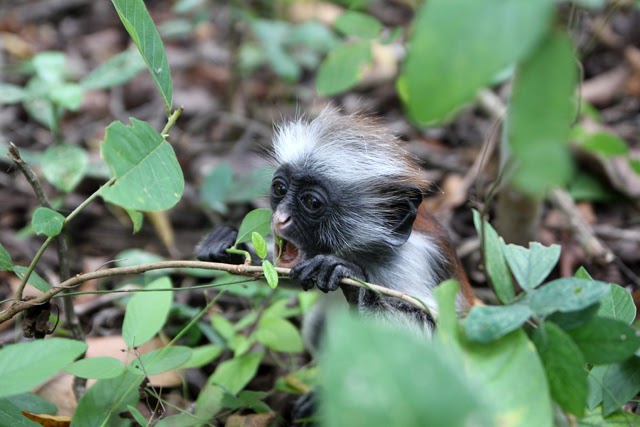
Jozani Forest, officially known as Jozani Chwaka Bay National Park, is Zanzibar's only national park, covering an area of 50 square kilometers.
Despite its modest size, the forest offers a rich biodiversity and a serene escape into nature, making it one of the island's top attractions.
Known for its lush greenery, Jozani Forest is often referred to as a 'natural pharmacy' due to the abundance of medicinal plants found here.
Visitors can marvel at the towering trees and palms, while exploring a unique ecosystem that is home to rare wildlife and vibrant plant life.
Red Colobus Monkeys and Wildlife of Jozani Forest
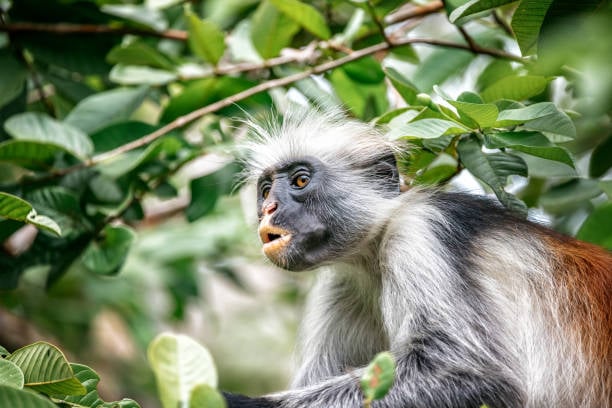
Close up of red colobus monkey in the trees of Jozani Forest
Jozani Forest is most famous for being the home of the rare and endemic Zanzibar Red Colobus Monkey (Procolobus kirkii). This species is unique to the island and cannot be found anywhere else in the world. The Red Colobus Monkey is easily identified by its distinctive reddish-brown coat, tufted head, and lack of a thumb. Jozani Forest serves as one of the last strongholds for this species, making it a must-see for nature lovers and wildlife enthusiasts. Despite being endangered for many years due to habitat loss and hunting, conservation efforts have helped their population recover. Today, it is estimated that there are between 2,000 and 2,500 Red Colobus Monkeys in Zanzibar, the majority residing within the boundaries of Jozani Forest.
These monkeys are a delight to observe in their natural habitat. They are remarkably accustomed to human presence, often allowing visitors to approach them at close distances while they go about their daily activities—feeding, playing, or resting in the trees. The monkeys are active during the day and live in large social groups, making them relatively easy to spot on a guided tour. However, it is important to keep a respectful distance and follow the guidance of park rangers to ensure their safety and preserve their natural behavior.
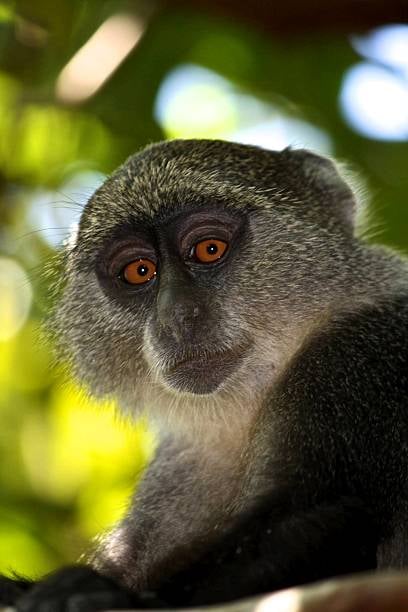
Close up of a Sykes' monkey (Cercopithecus albogularis)
In addition to the Red Colobus, Jozani Forest is home to the elusive Zanzibar Sykes' Monkey, a critically rare primate species native to Zanzibar. Spotting one of these monkeys is a rare treat, as they are much shyer than their Colobus counterparts. The forest also hosts nocturnal animals like the Bushbaby (Galago), which is easier to hear than to see due to its loud, eerie cries after dark.
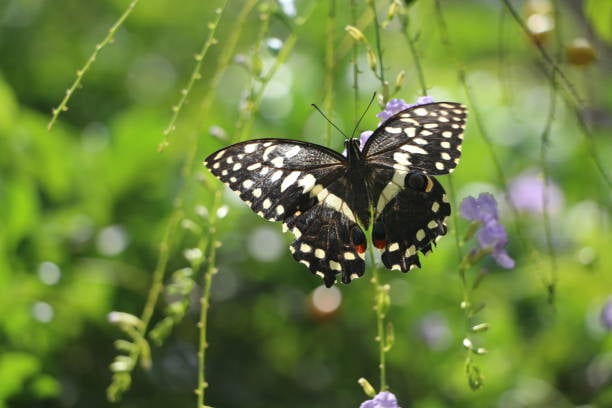
Butterfly (Papilio ophidicephalus, Emperor Swallowtail, Arthropoda Insecta Lepidoptera Papilionidae), taken in Butterfly centre near Jozani Chwaka Bay National Park on Zanzibar Island
Jozani Forest is rich in biodiversity, with over 50 species of butterflies fluttering through the dense canopy and around 40 species of birds nesting in the trees. Birdwatchers can spot species like the Zanzibar Red Bishop, Fischer’s Turaco, and various sunbirds. The park is also known for its medicinal plants, many of which have been used by locals for centuries to treat various ailments.
The forest spans over 6,207 acres and was declared a nature reserve in the 1960s, a vital step in protecting the remaining habitat of the Red Colobus Monkeys and other endangered species. There are a number of trails throughout the forest, which are only accessible with an official guide. This ensures the protection of the flora and fauna while providing visitors with a more enriching and educational experience. The main trail, which starts at the park entrance, takes approximately one hour at a leisurely pace and provides a deep dive into the forest’s diverse ecosystems, including coastal forest, swamp forest, and mangrove swamps.
Jozani is only open during the day to protect the nocturnal wildlife, and it's believed that the elusive Zanzibar leopard may still roam the forest at night, although sightings are extremely rare. The park’s commitment to wildlife conservation and sustainable tourism makes it a prime example of how protected areas can help endangered species recover and thrive in their natural habitats.
What to wear on Jozani Forest Tour
For the Jozani Forest tour, dress modestly out of respect for local customs, especially for women—covering shoulders and knees is recommended. Lightweight, breathable clothing is ideal, and comfortable shoes like sturdy sandals or sneakers are best for walking on forest paths and wooden boardwalks.
Don’t forget essentials like a hat, sunglasses, sunscreen, and insect repellent to protect yourself from the sun and mosquitoes. Bringing a reusable water bottle is also a good idea to stay hydrated in the tropical heat.
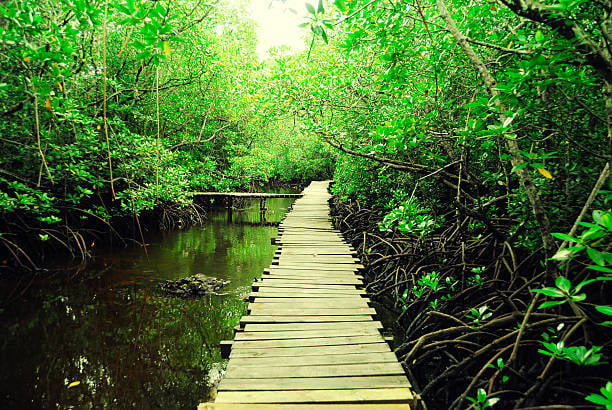
Mangrove with boardwalk near Jozani Forest, Zanzibar
Booking Your Trip
To book your Jozani Forest tour, contact us directly via WhatsApp at +31 6 51364947. The tour includes transport and an experienced guide, offering an unforgettable experience exploring Zanzibar’s only national park.
Reconnect with Nature at Jozani: A Must-See in Zanzibar
Jozani Forest offers more than just a scenic tour—it’s an immersion into the rich biodiversity and cultural heritage of Zanzibar. Whether you’re marveling at the rare Red Colobus Monkeys, exploring the medicinal plants, or strolling through the serene mangrove boardwalk, Jozani is an experience that leaves a lasting impression. For anyone visiting Zanzibar, this tranquil yet vibrant forest is an essential stop, providing a deeper connection to the island’s unique natural environment. Don’t miss the chance to explore this hidden gem on your adventure!



